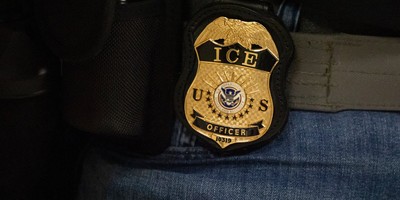A disturbing Department of Justice program allows unelected bureaucrats to target law-abiding individuals and industries. Named Operation Choke Point, it has been in operation since 2013 with the intention of combating fraud and money laundering. But its powers are being abused.
On Tuesday, the US Consumer Coalition broke the story of Operation Choke Point’s unjustified attacks on Global Hookah Distributors, a North Carolina tobacco distributor. The company was cut off from its bank of 14 years (Bank of America) and payment processor (EFT Network) though it was never accused of committing a crime.
Speaking about his company’s experience, Global Hookah Distributors president Brennan Appel said, “We run a legal business and comply with all the applicable regulations… This interference with our ability to run our businesses is beyond anything we’ve ever seen or thought legally possible.”
Appel’s case mirrors a similar instance from earlier this year in which Hawkins Guns, a Wisconsin firearms and ammunition store owned by Mike Schuetz, was dropped by its local credit union. The reason? Heritage Credit Union told Schuetz that “they do not service businesses that deal in guns.”
In addition to the Justice Department, the Federal Deposit Insurance Corporation plays a major part in Operation Choke Point. FDIC lists 30 “high-risk” industries that it tells financial institutions to avoid. These types of businesses include, among others, those selling surveillance equipment, dating services, firearms and ammunition, and tobacco.
Four criteria for a high-risk classification are lack of consumer familiarity with the merchant, uncertain quality of goods and services, internet or telephone sales, and difficult consumer verification of merchant identity or legitimacy. FDIC has not identified why legitimate businesses such as Global Hookah Distributors and Hawkins Guns fit these criteria, yet it still pushes banks to refuse services to these types of businesses.
Recommended
A House Oversight Committee report found that “FDIC explicitly intended its list of ‘high-risk merchants’ to influence banks’ business decisions. FDIC policymakers debated ways to ensure that bank officials saw the list and got the message.” Since the FDIC is charged with supervising more than 4,500 depository institutions, pressure from this agency has the potential to affect all businesses that rely on the support of banks. And all businesses need banks.
Those in the financial services industry are not to blame. Banks and payment processors are threatened with increased federal scrutiny, such as additional audits, if they offer services to what the government deems high-risk businesses, even ones that operate completely legally. The core problem is that government is refusing to distinguish legal businesses from those engaging in illegal activities such as Ponzi schemes and illicit substances.
Payday lending is another legal industry that has fallen out of regulators’ favor. Payday loans are short-term, low-value loans. Some people view these as predatory since they are easy to get and carry high interest rates, but payday loans serve an important role by providing necessary financing to those with few other options.
FDIC clearly views legal payday loan services as predatory. As highlighted in the House Oversight Committee’s report, “a senior official in the Division of Depositor and Consumer Protection insisted that FDIC Chairman Martin Gruenberg’s letters to Congress and talking points always mention pornography when discussing payday lenders and other industries, in an effort to convey a “the unsavory nature of the businesses at issue.” Additional emails from FDIC senior staff show that they “literally cannot stand payday [lenders].”
In February Sen. Marco Rubio (R-FL) introduced legislation to end Operation Choke Point. Though Rubio emphasized the negative effect on the firearms and ammunition industry, his proposal would fully defund all the activities associated with Operation Choke Point and prohibit the next Attorney General from restarting it or a instituting a similar program.
Rep. Sean Duffy (R-WI), another congressional opponent of Operation Choke Point, told me, “This is the greatest abuse of power that no one is talking about. You’ve got vigilante bureaucrats taking down lawful businesses without any due process simply because they don’t like them. But whistleblowers, like Mike Schuetz from Hawkins Guns in my District, are stepping-up to hold the regulators accountable."
Outrage from members of Congress and the public led the FDIC to issue a statement on January 28, 2015 that encouraged banks to take a case-by-case approach under Operation Choke Point, rather than cutting off entire industries. This is but a first step to cleaning up the mess bureaucrats created by listing legal industries as high risk and using their powers to pressure banks into not serving them. Legislation that bans the targeting of innocent business owners from government-induced harassment is still necessary.
One of the many disadvantages of an expansive regulatory state is that it opens the door to unelected bureaucrats pursuing law-abiding individuals and industries that are viewed unfavorably, such as firearms and tobacco.
When regulatory agencies are given too much power, it is often enforced at their discretion. That means that some bureaucrats use their personal preferences to target law-abiding individuals. Operation Choke Point has far exceeded its intended boundaries and it needs to be ended, not simply reformed—preferably before more innocent business owners are targeted.

























Join the conversation as a VIP Member